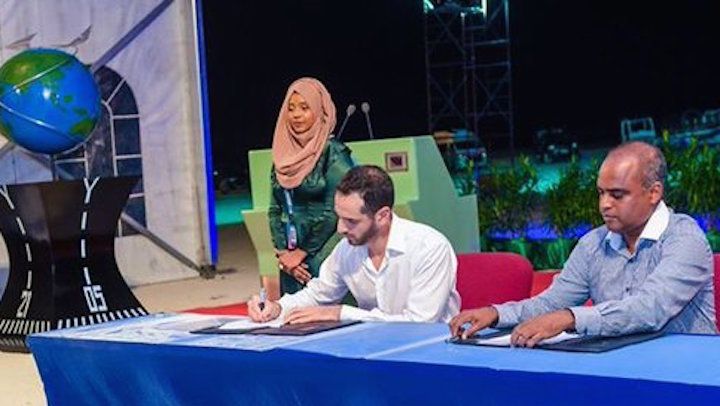Saudi Binladin Group awarded Maldives airport terminal project
A massive project to construct a new passenger terminal at the Ibrahim Nasir International Airport has been awarded to the Saudi Binladin Group for an undisclosed amount.

22 May 2016, 09:00
The Saudi Binladin group has been awarded a massive project to construct a new passenger terminal at the Ibrahim Nasir International Airport for an undisclosed amount.
The state-owned Maldives Airports Company Ltd signed a contract with the Saudi construction giant last night.
Speaking at the ceremony, MACL Managing Director Adil Moosa said the new terminal will be built on reclaimed land in the southwest of the airport island. With a floor area of 78,000 square meters, the new terminal will have 40 departure checking counters, 38 immigration counters, 12 jetties, and six aero-bridges.
President Abdulla Yameen inaugurated a monument for the project at the commencement ceremony.
Become a member
Get full access to our archive and personalise your experience.
Already a member?
Discussion
No comments yet. Be the first to share your thoughts!
No comments yet. Be the first to join the conversation!
Join the Conversation
Sign in to share your thoughts under an alias and take part in the discussion. Independent journalism thrives on open, respectful debate — your voice matters.




